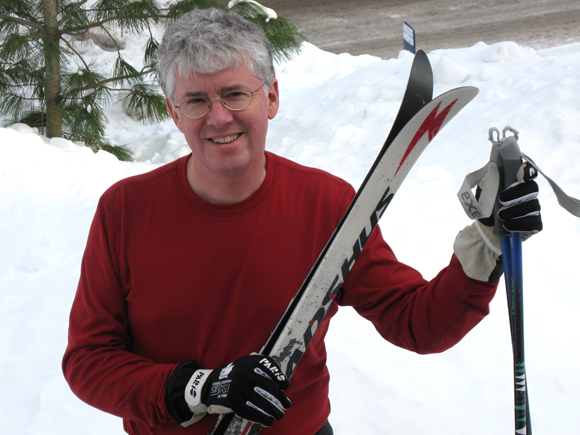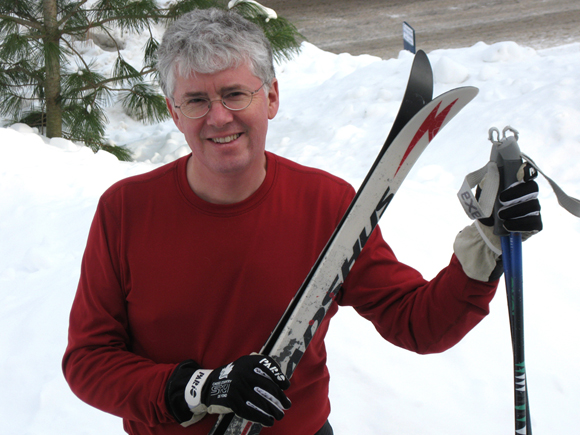By Denise Deby –
A passion for cross-country skiing prompted Charles Hodgson to get more active in another way: he’s raising awareness of climate change.
Hodgson, a Champlain Park resident, organized “The Future of Snow and Skiing in a Warming World,” a panel discussion at the Canadian Aviation and Space Museum on February 5. Hosted by Ecology Ottawa, the evening featured Olympic skiers Sara Renner and Patrick Biggs, Nakkertok Ski Club and Vancouver Winter Olympics groomer Dirk Van Wijk, the National Capital Commission’s Gatineau Park senior manager Renée Bellehumeur, scientist Dr. Stephan Gruber and Mont Ste-Marie and Camp Fortune owner Bob Sudermann.

Hodgson is an author of books on word history and former engineer who runs a blog called Guide Gatineau (guidegatineau.ca) about the park. A few years ago, he learned about a 2005 report by University of Waterloo researchers for the NCC about the effects of climate change on NCC operations.
“The thing that jumped out at me was this likelihood that by 2050 there might not be any skiing in Gatineau Park. For me as an avid cross-country skier, that made me perk my ears up,” says Hodgson.
Hodgson began investigating what the City of Ottawa was doing about climate change, and got involved with Ecology Ottawa as a volunteer and board member. He started a new blog called Climate Ottawa (climateottawa.ca), encouraged the city to hold its first Greenhouse Gas Roundtable in 2013, and organized the winter sports discussion after hearing of a similar event in San Francisco last year.
Snow and skiing are part of people’s everyday experience, and easier to relate to than “cataclysmic” discussions of climate change, explains Hodgson. “When something is a big, broad problem, you’re aware of it but you don’t really take action, but if it appears to be really in your neighbourhood, then you pay much more attention to it.”
Hodgson suggests four actions people can take, starting with using less energy, divesting from fossil fuel industries and supporting environmental groups.
“The most important, and actually the easiest one, is to talk to our elected officials,” says Hodgson. “If we tell them this is important, they’re going to start to believe it’s important.”
Highland Park resident Gillian Wheeler was one of the over 250 people who attended the event. She and her family are downhill and cross-country skiers, so she appreciated hearing what climate change means for winter sports locally and what’s being done elsewhere in the world.
“I did wonder whether there’s a tipping point at which the efforts and the energy consumed to preserve snow and extend ski seasons might outweigh the benefits or add more energy consumption into global warming,” says Wheeler. “It may not be as far away as we had thought.”
“It did make me think about the small things I could do as one citizen in this city,” adds Wheeler. “Different ways to enjoy the outdoors without being big consumers, or things that we do as consumers not related to sports—just small things can also make a difference.”
For more information go to ecologyottawa.ca.
